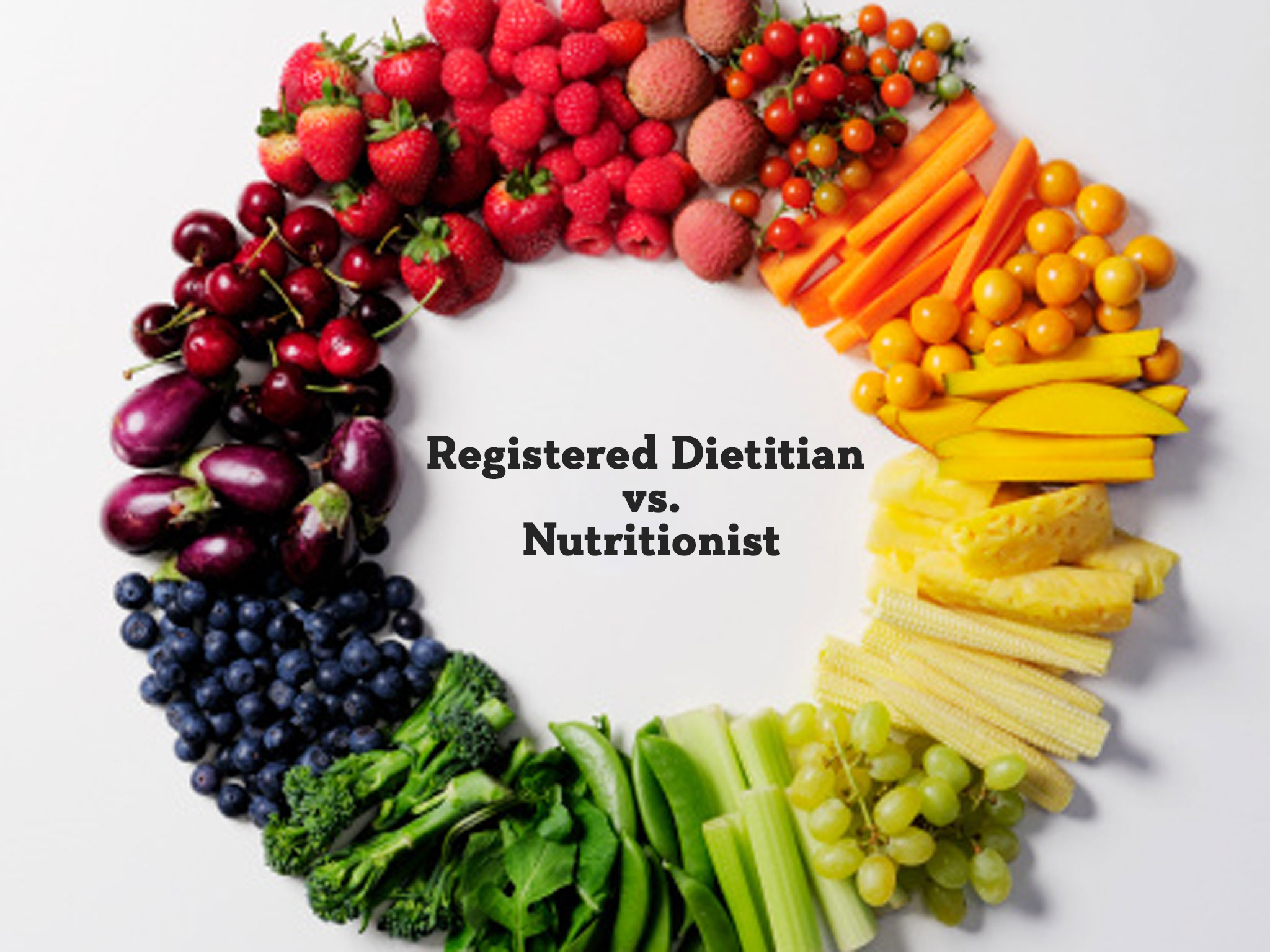So, what’s the difference between a registered dietitian and a nutritionist? And what’s with all the different types of nutrition “peeps” out there. I don’t know about you, but all the different terms can be confusing. There’s registered nutritionist, holistic nutritionist, nutritional therapist, licensed nutritionist, health coach, registered dietitian, and more! Who does what and how did they get these titles? As I started getting more serious about getting certified as a nutritionist I did some research on these terms and figured out what was best for me based on my philosophy on health and wellness. Here’s what I found:
The main designations in the nutrition world are nutritionist and registered dietitian. Both are food and nutrition experts and base their practice in science and nutritional research studies. Both have the ability to work in private practice or with another health practitioner like a naturopathic or allopathic doctor. Health insurance may or may not cover either of their services, so check with your provider or FSA first to see if the services are covered. Also, just as a note, these are in reference to the United States designations. Other countries may have different classifications.
Nutritional Consultant (NC), Nutrition Therapy Practitioner or Consultant (NTP/NTC) can also be referred to as a Holistic Nutritionist or health coach. People with these certifications have attended a specific school where they become certified to consult in nutrition and lifestyle for their patients. Certifications can vary from state to state. A nutritionist may not use the title of a dietitian.
NC’s and NTP’s are educated in how food affects the body and how diet and lifestyle can be used to prevent disease and live healthfully. They do this by evaluating the diet and lifestyle of their clients and making recommendations accordingly. In doing so, NC’s take into consideration the whole person’s mental and emotional perspectives rather than just the physical. They also take into consideration preventative measures, food sensitivities and allergies. NC’s focus less on calorie counting and more on the quality of food and what the individual needs in terms of nutrients and vitamins. They use natural and herbal remedies as well as vitamin and mineral supplements to support their food-based practice.
Some nutritional consultants may choose to focus on additional alternative methods of wellness to add to their practice, including Ayurvedic medicines, Chinese medicine, herbal medicine or homeopathy.
At Bauman College, the school I chose for my nutritional consultation certificate (NC), we are taught in two terms. The first one is all about fundamentals of nutrition. These are classes that include what Eating for Health means (macronutrients, micronutrients, vitamins and minerals), different kinds of “diets” out there, biochemistry, anatomy and more. The second half is focused on therapeutics. This includes classes that focus on stress and the endocrine system, weight loss, sports nutrition, blood sugar regulation, cancer and disease, and more.
Registered Dietitian (RD) or Registered Dietitian Nutritionist (RDN) generally go though a four-year, bachelor’s degree in nutritional science or dietetics, participate in a one-year internship, pass a national exam and become licensed in their state of residing by the Commission of Dietetic Registration. They typically work with hospitals and schools and focus more on the USDA myPlate standards and calorie counting. Though a lot of them don’t practice holistically, there are becoming more and more out there that are. They may also choose to call themselves a nutritionist.
There are a lot of different terms out there in the nutrition world and these are the two most common. There are many different reasons to choose one over the other and most importantly what I think it comes down to is personal connection. Do you agree with their philosophy? Do you feel comfortable sitting with them and talking about your personal life, family history and eating habits?
I chose to go the route of nutritional consultant for several reasons. One, I made this career change later in my life. I am in my early 30’s and have already had a whole other career life. I have been a graphic, web and user experience designer for the past decade. Two, I already have a bachelors of science in mathematics and studio art from Georgetown, and I didn’t feel like getting an additional bachelors or masters (at this time) to become a registered dietitian. Three, the program I really wanted to go though had a physical campus location in Berkley, California and Boulder, Colorado. And when my husband and I needed to move from Los Angeles to Denver a year ago, I took it as a sign that I needed to follow my fascination with food and wellness. It’s been an exciting time to change careers and also a bit nerve-wracking to go from a stable and well-paid job to a student again with much uncertainty. But I am enjoying it, every bit.
What are your thoughts here? Are you considering being on of these or seeing one for your health?
References:
Bauman College. (n.d.). Nutrition Consultant.
Vega. (2013, May 9). Registered dietician vs. nutritionist – what’s the diff?

